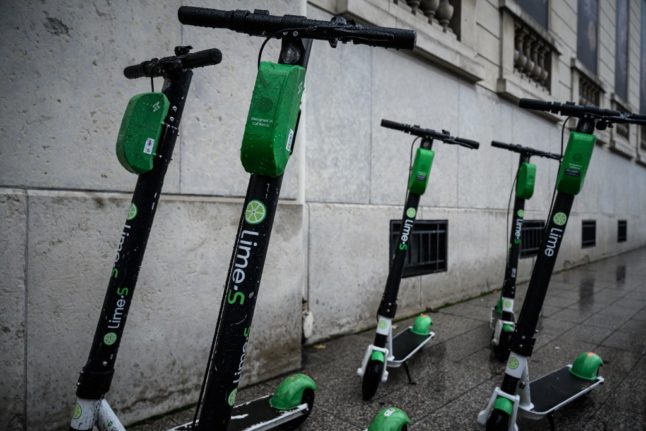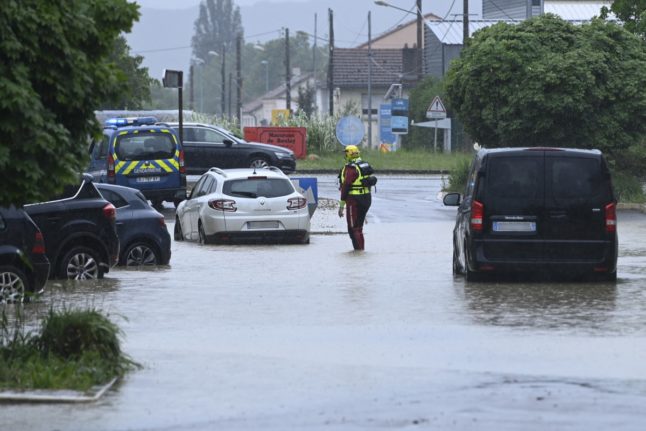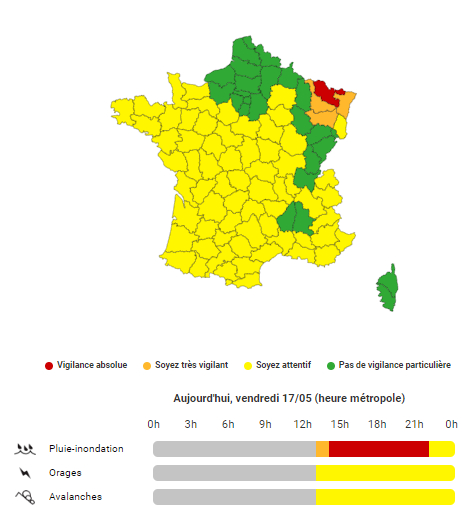Paris was an early adopter of for-hire electric scooters back in 2018 – enabling people to hire the dockless scooters via an app was touted as a promising climate-friendly alternative to cars for a city that needed to reduce its pollution levels.
French media referred to Paris as an ‘international electric scooter capital’ and by 2019 there were 12 different scooter operators in the city of Paris – more than the entirety of the United States at the time, according to The Guardian.
Now, as some cities like London extend their contracts with free-float e-scooter operators, Paris is preparing to join a small cohort of other cities such as Montreal and Barcelona in banning the devices entirely – becoming the first European capital to do so.
End of an era! Goodbye to free-float electric scooters in Paris pic.twitter.com/JRUWpmYl7S
— Genevieve Mansfield (@gen_mansfield) August 28, 2023
A rocky start
Paris-based American influencer Amanda Rollins, 33, who often gets around by scooter, told AFP that she remembered when the scooters arrived in Paris in 2018. She said it was “like Christmas… it was like Santa came overnight”.
But even though Paris was seen as a pioneer for ushering in so many trottinettes électriques, their entrance was chaotic.
Scooter-users, many of whom were tourists, left the devices abandoned across sidewalks while others rode them on pavements and through crowded areas. Many ended up dumped in the River Seine and there were reports of injuries and even deaths – mainly of pedestrians.
At least three fatalities have been reported after pedestrians were hit by e-scooters and one woman, a pianist at the Paris Opéra, wound up with a broken arm and unable to play her instrument for several months after being hit by a scooter.
Regulation
In the light of the series of complaints, within their first year of use Paris’ mayor Anne Hidalgo promised tighter regulations on the e-scooters – instituting speed limits, and cracking down on reckless riding, as well as the indiscriminate dumping of the devices across the city.
Following on from local bylaws in Paris, in 2019 the government added e-scooters to the French highway code – which imposed nationwide rules including speed limits as well as a limit of one person per scooter.
Later in 2019 Paris city authorities decided to limit the number of operators to just three companies – Lime, Dott and Tier were eventually chosen.
Each of the three e-scooter operators were only allowed to offer 5,000 devices on the capital’s streets, capping the number of trottinettes in Paris to 15,000.
More regulation
Two years later in 2021, even with these regulations, an Italian pedestrian walking along the Seine became the third person to be killed by e-scooter drivers in Paris after two people riding the same device hit her.
In the months following, Paris’ city hall contemplated banning free-float e-scooters entirely, but eventually settled on instituting more rules.
These required operators to place ‘slow-zone’ speed limits on the devices themselves, meaning users scooter speeds would not be able to exceed 10km/h in these areas.
Finally in April 2023 – a few months after an online petition to scrap the e-scooter rental schemes in Paris garnered over 18,000 votes – residents were given the choice and in a referendum Parisians voted by almost 90 percent in favour of a ban (albeit with a turnout of just 7.5 percent).
The ban will come into effect on Friday, September 1st.
Scooter feelings
When it comes to usage, the scooters have been popular amongst visitors and residents alike. Euronews reported that in September 2022 that 450,000 people in Paris used the free-floating e-scooters.
An Ipsos survey found that 88 percent of Parisians saw e-scooters as “part of daily transport” and that “over half of Parisians had already used one”.
Euronews also reported that with the regulations in place, the parking issue had mostly been remedied. As of October 2022, about 96 percent were parked where they should be meaning not lying on sidewalks or impeding pedestrians.
But anti-scooter sentiments have persisted. One Paris resident, Tad Frizzel, told The Local that he had more than one E-scooter related accident, as a pedestrian. “The whole situation is a complete bordel [nightmare],” said Frizzel. “I’ve been hit by them twice in a single day!”
READ MORE: ‘Inherently unsafe’ – Why Paris readers want e-scooter rental schemes banned
Despite a lack of large-scale representation, many Parisians still agreed with the outcome of the vote while others were simply apathetic about the presence of the scooters.
Maria, aged 28, said she had never used the e-scooters and had never had a desire to. “I take public transport and I walk. I don’t really have a strong opinion, but the scooters don’t really bother me.”
Taking stock of regulations that have been passed in the last few years to make the devices more safe and less of a nuisance, Maria added “I do think people use them more on the bike lines than they used to. There are people riding the scooters on the sidewalk now”.
Others , like Issa, who works in Paris and owns a personal e-scooter, said safety is still a concern. He said that even with speed limits “people go too fast”.
“I’ve had several accidents myself with people on e-scooters, so much that I don’t use my own anymore. You still see groups of two, sometimes even three people to a scooter. They do not respect pedestrians.”
Another long-time Parisian, Clémentine, told The Local that she is not in support of a “100 percent ban” but she favours “at least some decrease in the number of scooters around”.
“There are too many on the sidewalks and too many are thrown into the Canal,” she said.
Cyclist Pauline also supports the banning the scooters, even though she likes to use them. She said: “I do agree with the result of the vote, even though I love the electric scooters and I think they’re fun.
“When it comes to pollution, I feel that the electric scooters are actually worse. They end up in the Seine, they end up broken with their pieces scattered around. It’s a mess and there is a real lack of respect for public property.
“Plus, people do not use the scooters to replace car rides. They use them instead of walking, biking or taking public transport. I think people should bike instead.”
Not quite goodbye?
While free-float e-scooters will be packed up and removed from the capital by September 1st, e-scooters will not disappear entirely.
With over 700,000 private e-scooter owners across France, locals will not be waving goodbye to the devices quite yet, even if it is an end of an era for the free-float alternative.
As of Friday, one of the three scooter operators, Tier, had already collected 3,000 of its 5,000 scooters.






 Please whitelist us to continue reading.
Please whitelist us to continue reading.
Member comments